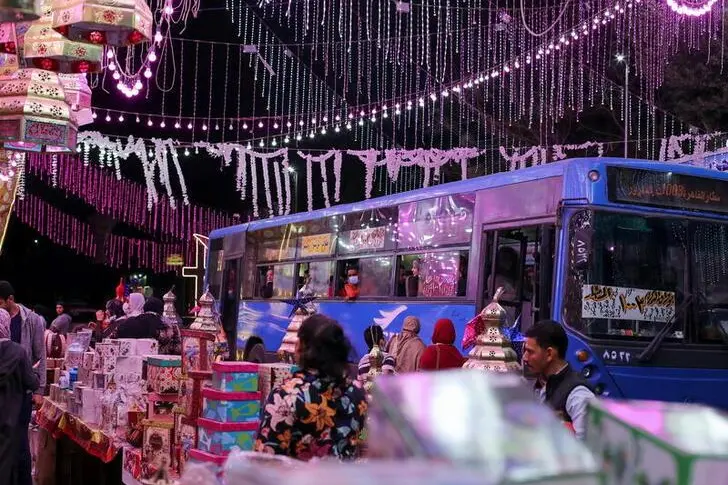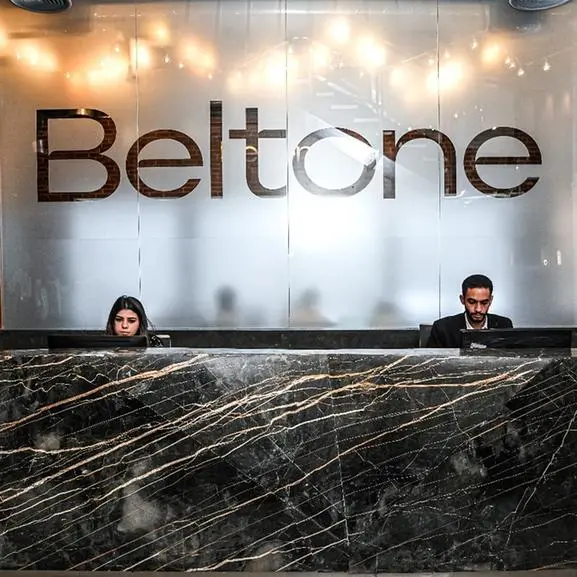PHOTO
ArabFinance: Every year, food consumption considerably increases during Ramadan, reaching an average of EGP 45 billion during the month, according to divs from the Central Agency for Public Mobilization and Statistics (CAPMAS).
Last Ramadan, Egypt’s demand for food commodities increased by 30%, See News quoted Ayman Al-Afandy, member of the Minya Chamber of Commerce.
On average, Egyptian families spend around EGP 250 billion on food every year, which corresponds to 45% of their expenditure, Ahram Online cited Administration Professor Hamdi Arafa.
The Café Effect
It is part of the Ramadan tradition to have family and friends gather during and after Iftar, which creates a café environment where people eat and sit together to talk over tea and coffee.
In 2019, 80% of Muslims surveyed by Statista declared they prefer to break their fast at home, which reflects on the number of food products purchased by a household. In that same year, 53% of consumers in the United Arab Emirates, Saudi Arabia, and Egypt increased their spending during Ramadan, where the majority spent on household items such as food and groceries.
As for Ramadan in 2021, divs show a strong shift towards home-cooked meals as opposed to takeaway or rating at restaurants. The same report shows that 96% of respondents from the Middle East and North Africa (MENA) will be buying grocery, food, and drink products during this month. “This will be up from 56% compared to the rest of the year,” Amna Puri-Mirza, senior researcher for the Middle East at Statista wrote in March.
Meanwhile, 46% of respondents are planning to invite people over for a collective meal despite the COVID-19 pandemic, according to the report.
The demand for Ramadan goods, such as dried fruits and nuts, increased by 70% since the beginning of Shaaban 2021, the month preceding Ramadan, See News quoted Magdy Tawfik, deputy head of the Perfumery Division at the Cairo Chamber of Commerce.
Although people tend to stay more at home for Iftar and Sohour, coffee shops and restaurants still experience an increase in the number of clients, often offering discounts.
Despite social distancing and the curfew imposed to contain the spread of the virus, 48% of respondents from the MENA region still planned to go out to a restaurant during Ramadan 2021, while the majority of those respondents stated they will visit a fast-food restaurant, Puri-Mirza found.
“After Iftar, we usually gather with friends and try to go out to have some quality time. We go out after staying with the family for at least one hour or one hour and a half. My friends and I usually sit in a coffee shop in Downtown or a similar area to get the real vibes of Ramadan,” says 26-year-old Alaa Refaat.
Higher food prices
Food prices tend to increase yearly in Egypt, especially during Ramadan due to the increase in consumption. This year saw a 70% increase in Ramadan goods, for instance, which has led prices to hike by 15%-20% year-on-year, Tawfik from the Cairo Chamber of Commerce said.
The kilo of raisins rose from EGP 48 in 2020 to EGP 58 in 2021, while the kilo of coconuts and prunes rose from EGP 48-50 to EGP 58 and from EGP 80 to EGP 90- 96, respectively, in the wholesale market.
However, consumption is not the only factor rising the food commodities cost this year. Tawfik stated that the prices of imported goods raised by 40% as a result of higher shipping fees, in addition to a 50%-60% decrease in imports as merchants were afraid that the losses witnessed during Ramadan 2020 would be replicated.
On the contrary of what some may believe, the blockage of the Suez Canal by the massive Ever Given containership between March 23rd and 29th 2021, which left hundreds of ships waiting to pass through the canal, did not affect the prices of goods in the local market, especially the commodities associated with Ramadan, as they were already available in warehouses before the blockage, Ahram Online reported, quoting Ahmed Shiha, a member of the Importers Division at the Cairo Chamber of Commerce.
Ramadan initiatives
Looking at helping Egyptians guarantee the traditional full table during the holy month, the government launched on April 4th the sixth edition of the ‘Ahlan Ramadan’ fair, which provides basic commodities at affordable prices. The fair went on until April 12th and had 26 branches across different governorates.
About 168 companies participated this year, offering discounts ranging between 18% to 28%, Ahram Online quoted Minister of Supply and Internal Trade Ali Moselhi.
Frozen chicken, Brazilian meat, and Sudanese meat were offered at EGP 30, EGP 65, and EGP 85 per kilo, respectively. Prices of dates ranged between EGP 9-17; while 700 grams of half-dried dates were sold at EGP 20; ‘Qamar el Din’, a dried apricot base used to make a traditional beverage, was sold at prices starting from EGP 23; and Egyptian raisins at EGP 20-24, as reported by See News. Small Ramadan bags were also offered at EGP 50.
In addition to the fair, the government has taken other initiatives to prepare the food market for Ramadan. At the beginning of April, Egypt imposed a three-month ban on exporting local beans, which is the main ingredient of a traditional dish that Egyptians consume all year long, also commonly consumed for Sohour.
“The decision to stop bean exports has boosted the strategic stocks of the food item,” Minister of Commerce and Industry Nevine Gamea said in an official statement. Bean consumption usually triples in Egypt during Ramadan compared to other months, the news portal informed, citing market observers.
Low-income families, refugees, orphans, and widows in Egypt have also started receiving food parcels as part of the ‘100 Million Meals’ campaign, organized by the UAE-based Mohammed bin Rashid Al Maktoum Global Initiatives (MBRGI) to support disadvantaged communities across 20 countries during Ramadan, according to UAE BARQ. The parcels include rice, oil, beans, beans, and flour, which are sufficient to prepare between 240 and 300 meals.
The campaign is carried in collaboration with the Mohammed bin Rashid Al Maktoum Humanitarian and Charity Establishment, the Food Banking Regional Network, the United Nations World Food Program, the Islamic Affairs and Charitable Activities Department in Dubai, humanitarian organizations in beneficiary countries, and federal and local entities in the UAE.
In Egypt, the distribution of the parcels is carried by the Food Banking Regional Network in collaboration with the Egyptian Food Bank and a number of charity organizations, under the supervision of the Ministry of Social Solidarity and its affiliated directorates in all governorates.
The initiative hopes to actively contribute to achieving the second of the UN Sustainable Development Goals that aims to end hunger, achieve food security, and improve nutrition by 2030.
Copyright © 2021 Arab Finance Brokerage Company All rights reserved. Provided by SyndiGate Media Inc. (Syndigate.info).





















